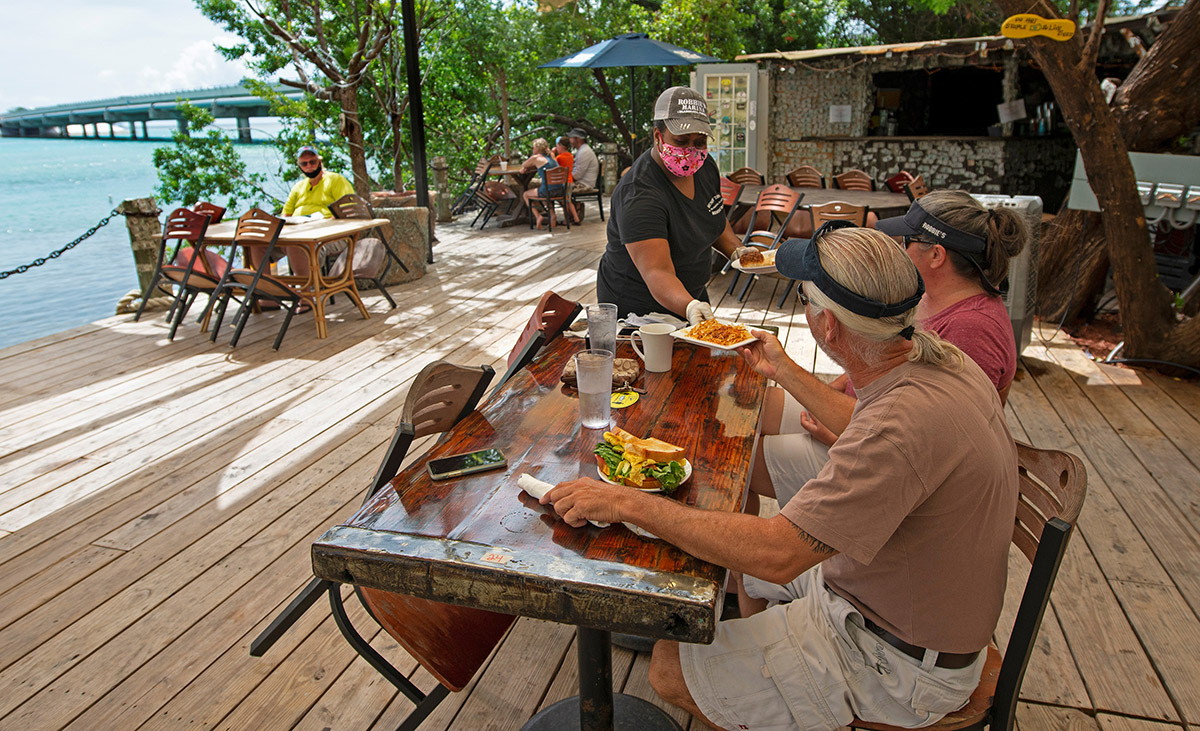Blog April 16, 2020
The Urban-Rural Divide Over the Coronavirus Outbreak

From the earliest days of the coronavirus outbreak, Republicans and Democrats have expressed sharply divergent views about the pandemic. In the recent American Perspectives Survey, 37 percent of Democrats said they were very worried that they or a family member would be infected. Only 21 percent of Republicans expressed this level of concern. In fact, partisanship strongly colors public views about the immediate public health threat it presents, concerns about the economic aftershocks, and judgments about the efficacy of governmental responses. But politics does not solely govern views of the coronavirus outbreak. Public attitudes are uniquely shaped by our geography.
Urban areas, like New York, Detroit, and New Orleans, have been disproportionately impacted by the coronavirus with some of the highest death rates in the country. Though the death rate in the US is currently much higher in urban areas than non-metropolitan areas, there are signs that the virus has begun to spread through rural areas. Two-thirds of rural communities now have at least one confirmed case of COVID-19. Despite recent increases in rural communities, urban residents are almost twice as likely as Americans living in rural areas to know someone who has been infected with COVID-19. Americans living in rural areas are less concerned about their family members or themselves becoming infected than those in urban areas (64 percent vs. 71 percent). Urban residents are more likely to have stock piled supplies (39 percent v. 28 percent), and are significantly more pessimistic about when life will return to normal in the US.
Importantly, the geographic divide is more pronounced among Republicans than Democrats. Republicans living in urban areas express more concerns about the coronavirus outbreak, and offer less positive evaluations of the government’s response. More than one in four (28 percent) urban Republicans say they are very worried about contracting COVID-19 compared to 18 percent of rural Republicans. City-dwelling Republicans are twice as likely to personally know someone who has been infected, and nearly twice as likely to have stockpiled groceries, toilet paper, and other household necessities (38 percent vs. 22 percent).
Republicans living in urban hubs express less ebullience in their support for the government’s handling of the pandemic. Forty-one percent of urban Republicans compared to 48 percent of rural Republicans say the federal government has responded to the outbreak very well. There is an even larger gap in views of Trump’s performance. Seventy-seven percent of rural Republicans say Trump has responded to the outbreak very well, a view shared by substantially fewer (64 percent) urban Republicans.
When it comes to what the government should do to balance the economy with public health, nearly seven in 10 Republican city dwellers say they should take all necessary steps to ensure the public is safe even if it means keeping businesses closed longer and hurting the economy. Fifty-six percent of rural Republicans said the same.
Despite clear partisan gaps in views about the coronavirus outbreak, where Americans live is shaping how they respond to it. For now, Republicans living in rural areas may be less concerned because they have yet to see the full impact of the virus, but experts warn that their time may be coming soon.








